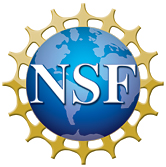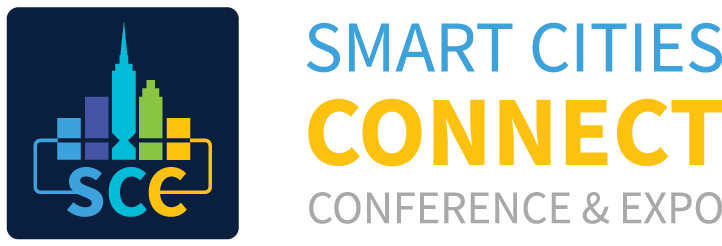Agenda
Colorado Convention Center — Room 205/207
Monday, April 1, 2019
7:15-8:00 a.m. Registration and Continental Breakfast
8:00-8:20 a.m. Welcome and NSF Insights into S&CC Program
Radha Poovendran, Professor, University of Washington
David Corman, Program Director, NSF/Directorate for Computer and Information Science and Engineering (CISE)
8:20-9:20 a.m. Research Lightning Talks and Panel: 2017 Integrative Research Grants Track 1
Lightning Talk and Panel Moderator: Daphney-Stavroula Zois, Assistant Professor, University at Albany, State University of New York
This session will begin with lightning talks that will review the progress of the 2017 Integrative Research Grants Track 1 large awards, followed by a panel with the PIs and their community partners. The panelists will discuss a range of topics, including: challenges with exchanging ideas and communicating progress to the project members and how these challenges have been addressed; changes to the plan of research activities over the course of the project; and ways of accelerating adoption of research to practice.
9:20-9:30 a.m. Break
9:30-10:40 a.m. Research Lightning Talks and Panel: 2017 Integrative Research Grants Track 2
Lightning Talk Moderator: Jonathan Sprinkle, Program Director, NSF/CISE
Panel Moderator: Hilary Boudet, Associate Professor, Oregon State University
This session will begin with lightning talks from each of the projects. A panel of PIs and one community partner will then delve deeper into the progress of their activities. This panel will additionally explore issues that have arisen on the projects related to data sharing, privacy, and trust. How companies collect, share and analyze big data about their customers has become a frequent topic on the news – from hidden cameras in Nest thermostats to Facebook and Google paying teens to install data collection apps on their phone. What impact are these revelations having on research practice and community partnerships within the Smart and Connected Communities projects and Smart Cities more generally? Panelists will discuss how their project teams are working together to resolve these issues, drawing implications for both research and practice in an increasingly connected and data-driven world.
10:40-11:10 a.m. Federal Perspectives on Smart and Connected Communities
Moderator: David Corman, Program Director, NSF/CISE
Following short introductions on the role of each participating agency in the smart and connected communities domain, discussion will focus on issues of security, as well as the unique challenges and opportunities offered by rural communities and regions.
11:10-12:00 p.m. Poster Session Round 1
Poster presentations from PIs of the following award types: 2017 Integrative Research Grants Tracks 1 and 2, Planning Grants.
12:00-1:00 p.m. Lunch with an NSF Program Director or other Federal Representative
1:00-1:55 p.m. Research Lightning Talks: 2018 Integrative Research Grants and other S&CC-Focused Projects from Related NSF Programs
Lightning Talk Moderators:
Meghan Houghton, Senior Advisor, NSF/CISE
Sylvia Spengler, Program Director, NSF/CISE
This session will include lightning talks from the diverse set of application areas and community partners awarded in FY 2018, along with three NSF projects with an emphasis on S&CC activities awarded through the Cyber Physical Systems program or the Big Data Regional Innovation Hubs program.
1:55-2:40 p.m. Poster Session Round 2
Poster presentations from PIs of the following award types: 2018 Integrative Research Grants, Research Coordination Networks.
2:40-2:55 p.m. Break
2:55-3:45 p.m. Department of Transportation Panel: Transportation and Equity
Introduction: Cynthia Chen, Program Director, NSF/Directorate for Engineering
Moderator: David Kuehn, Department of Transportation’s Federal Highway Administration
The panel will highlight opportunities where emerging technology could provide transportation benefits or reduce impacts from transportation for people that traditionally have been underserved or disproportionately burdened, which includes but is not limited to people with low incomes, people with disabilities, or people in rural areas. Rapid advances across multiple fields such as robotics and vehicle automation, mobile and low powered sensors, communications, and information technology are creating profound impacts on people’s day-to-day lives. The changes from the introduction of new technology is not taking place evenly. One domain where this is evident is transportation where access and mobility increasingly depend not only on physical systems but also on cyber systems. Taking a forward look at the interplay between the engineering of new transportation systems and social systems could result in the creation of new opportunities for more Americans and avoiding unintended disparate impacts.
3:45-5:10 p.m. Achieving Long-Term Impact Mini-Workshop Part 1. Considering Equity, Access,
Privacy, Security, and Other Unintended Consequences
Leads:
- Michal Ziv-El, AAAS S&T Policy Fellow NSF/CISE
- Lilian Ratliff, Assistant Professor, University of Washington
5:10-5:15 p.m. Closing Remarks Day 1
David Corman, Program Director, NSF/CISE
5:30 p.m. Networking Event
H Bar at Hyatt Place, Denver/Downtown
440 14th Street Denver, Colorado 80202
Tuesday, April 2, 2019
8:00 a.m. – 12:15 p.m. Plenary session with US Ignite Application Summit and Smart Cities Connect Conference and Expo
12:15 p.m. Lunch
Lunch will be provided and will available through mid-afternoon.
12:55-1:00 p.m. Welcome Day 2
Erwin Gianchandani, Deputy Assistant Director, NSF/CISE
1:00-2:15 p.m. Lightning Talks and Panel: 2017 Planning Grants
Lightning Talk Moderator: David Corman, Program Director, NSF/CISE
Panel Moderator: Dong Wang, Assistant Professor, University of Notre Dame
This session includes both lightening talks and a panel discussion. The lightening talks will
discuss the exciting outcomes and experience learned from ten planning grants in FY 2017. The
panel will include several PIs who lead planning projects across a range of application domains: rural communities, small and shrinking communities, communities tackling sea level rise, and manufacturing communities. The panel will discuss insights, lessons, and visions the panelists have obtained from their planning projects, and how this will allow them to develop compelling full-scale proposals and projects.
2:15-2:25 p.m. Break
2:25-3:50 p.m. Achieving Long-Term Impact Mini-Workshop Part 2. Considerations Beyond the Life of Your NSF Grant: Transferability, Scalability, and Sustainability.
Introduction: Jonathan Sprinkle, Program Director, NSF/CISE
Session Lead: Ben Levine, Metrolab Network
This session will explore how smart & connected community research is sustained, scaled, commercialized and institutionalized. It will include two parts: first a panel of experts that represent a range of sectors: philanthropy, government, non-profit, and industry that can speak to the various ways in which civic research can achieve lasting impact. The panel will explore the reality that the conditions in which projects are scaled and sustained vary greatly by sector. It will help PIs consider how their research would best succeed in the civic sector.
The second part of the session will include a table-top exercise in which PIs break into groups based on the most feasible way in which their research can be scaled and sustained (e.g. commercialization, adoption by gov’t, partnership with non-profit / philanthropy). The experts from the previous panel will sit with the groups most aligned to their expertise and offer guidance related to specific PIs’ activities and ways they can maximize the impact and reach of their work.
3:50-3:55 Concluding Remarks Day 2
Sylvia Spengler, Program Director, NSF/CISE
4:00-7:00 p.m. Poster and Demo Session in Expo Hall
Open to attendees of the US Ignite Application Summit and Smart Cities Connect Conference and Expo
Wednesday, April 3, 2019
7:30 a.m. Continental Breakfast
8:00-8:05 a.m. Welcome Day 3
Meghan Houghton, Senior Advisor, NSF/CISE
8:05-9:00 a.m. Panel: 2018 Integrative Research Grants
Panel Moderator: Elizabeth Belding, Professor, University of California Santa Barbara
Participatory research and crowdsourced information have the potential to unlock vast quantities of data for researchers, enabling advances in health care and human safety at unprecedented rates. However, this aggregation of information also comes with unintended risk potential. This panel will broadly explore these issues, as well as topics ranging from best practices to successfully engender participation of community partners, to ways that participatory research is likely to advance health care and safety. The panel will conclude with a discussion of how projects are addressing interdisciplinary social and technical dimensions in order to achieve true integration of these areas, and what they are doing to strengthen their academic collaborations across disciplines.
9:00-10:10 a.m. Lightning Talks and Panel: 2017 Research Coordination Networks
Lightning Talk Moderator: Andrew Clark, Assistant Professor, Worcester Polytechnic Institute
Panel Moderator: Sylvia Spengler, Program Director, NSF
This session will give an update on the S&CC Research Coordination Network (RCN) projects from FY2017. The PIs will first present their project objectives and progress via lightning talks, and then elaborate via an interactive panel session involving the PIs of each RCN. Panel discussions will focus on the challenges and lessons learned from the first two years of the RCNs; any changes to be made in the remaining years of the project; the nature and scope of RCN activities so far; involving and working with community partners; and the approach of each project to ensure that the collaboration networks endure beyond the lifetime of each project.
10:10-10:25 a.m. Break
10:25-11:25 a.m. Achieving Long-Term Impact Mini-Workshop Part 3. What is Success for Your NSF Project?
Lead: Jonathan Sprinkle, Program Director, NSF/CISE
The goal of the Smart and Connected Communities program is to accelerate the creation of the scientific and engineering foundations that will enable smart and connected communities to bring about new levels of economic opportunity and growth, safety and security, health and wellness, and overall quality of life. This goal will be achieved through integrative research projects that pair advances in technological and social dimensions with meaningful community engagement.
In this NSF-led session, PIs will take part in facilitated discussion in small groups regarding how their own goals are measured, the timelines in which those metrics are measured, and the key actions required to measure success along activities for technical, social, and community engagement axes. Outcomes will include self-assessed insights by PIs in how to address potential challenges in achieving the desired success of their project.
11:25 a.m. – 12:00 p.m. Ask the S&CC Program Directors
Moderator: David Corman, Program Director, NSF/CISE
Ask the NSF S&CC Program Directors anything, including exciting future plans and activities for the S&CC program.


